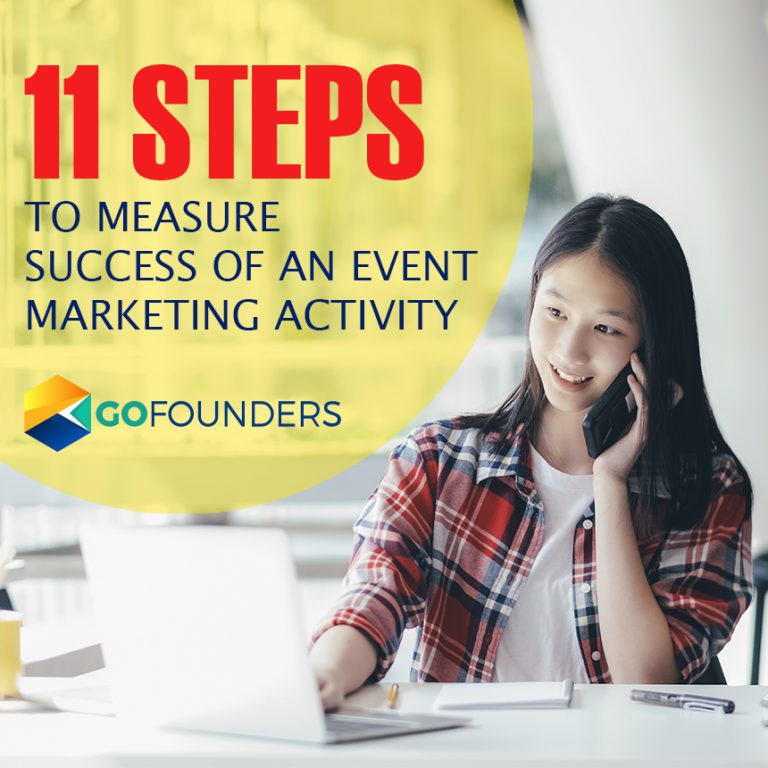
The world around is all about marketing. You know about products, services, events, jobs and companies only when you see an ad. But companies are slowly dropping their conventional marketing style and moving towards event marketing.
Earlier, we explained why event marketing is one of the essential parts of the business strategy.
Now, you might ask “why companies prefer event marketing while they can post ads on different platforms such as television, social media, newspapers, magazines, etc.? Are these mediums not enough for reaching out to the crowd?”
The answer is, No, these are not enough.
Below are the reasons why marketers are focusing more on event marketing than any other approach:
- These channels have become too noisy, and the impact of efforts made on these platforms is becoming obsolete.
- People want to see the products and their functions live in front of them.
- Customers want to establish trust by being part of a company’s community.
- Customers want to establish a personal connection with the brands.
- They do not want to buy anything by reading or watching an ad; instead, they want to “feel” and “experience” the products and services first.
- They want to understand the core values of brands and where they fit in the world of several needs.
When the reasons mentioned above are the area of opportunities for companies to explore, at the same time, these are also the challenges for improving the marketing strategies. The problem is how to measure the success of an event marketing activity.
Any business strategy has to be aligned with SMART goals which simply mean Simple, Measurable, Achievable, Relevant and Time-Bound.
Below are 11 Key Performing Indicators (KPIs) to measure the success of an event marketing activity:
- Registrations: Tickets are the first thing that gets out for the public for any event. Online registration options are made available through ads or landing pages. Marketers could analyze the number of tickets that got sold out and the ticket type, which has maximum demand. If registrations are free, then event managers could identify which channels are drawing more registrations.
- Gross Revenue: It is one of the major indicators of measuring the success of a paid event. The key insights for creating gross revenue metric could be demography of attendees, the type of tickets that were sold out most quickly, and the peak time of the year when the ticket sales were high.
- Attendee Feedback: An event cannot be considered successful unless marketers use the feedback of the attendees to measure its success. What do the attendees think about the event? How satisfied were they with the event? Was there any take away from the event? These factors would help to identify the areas of improvements and the success of key elements of the event.
- Engagement of attendees: Event marketing requires the engagement of the attendees. The attendees must participate and involve themselves in each of the activities. These involvements define the relationship with the customers and clients. Hence, one must keep a check on key insights of the activities and how engaging was the agenda to draw active participation from the attendees.
- Brand Mentions: Once the event has been announced, marketers must monitor social media mentions of the brand and the event. This is required to identify what people are talking about the event on social media. Are they sharing negative perception or drawing in more attendees.
- Speaker page engagement: Speakers share their speeches and contents on their profile page. Hence, attendees engagement can be also be analyzed by monitoring the speaker’s profile page, likes, and the views received on the page and the shared content.
- Check-ins vs. Total Registrations: After the announcement of the event, number of check-ins on the site needs to be compared with the number of total registrations received. This will help to identify if the contents are engaging or not.
- Cost of Sales to Revenue Ratio: If you as a marketer want to evaluate the quality and quantity of the resources required for an event, then you must analyze the revenue generated by the registrations against the cost of the event. Higher the revenue generated against the cost means the higher success of the event.
- Acquired Customers: The objective of any event is to generate leads or customers for the business. Hence, post every event, marketers must compare leads generated vs. the cost of acquisition.
- Target accounts created: Marketers must keep a check on the number of target accounts created after sharing contents related to the event. Higher the target accounts participating in the event suggests a higher success rate of the event.
- Target accounts closed: Similar to checking the number of target accounts created; marketers must also monitor the accounts which got closed which could highlight the gap in the interest of the attendees and the contents shared on the site.
This is an exhaustive list of KPIs which can help any marketer to monitor and measure the success of an event and also to plan upcoming events for future marketing activities. We hope you try to consider these KPIs to measure the success of your business events.


